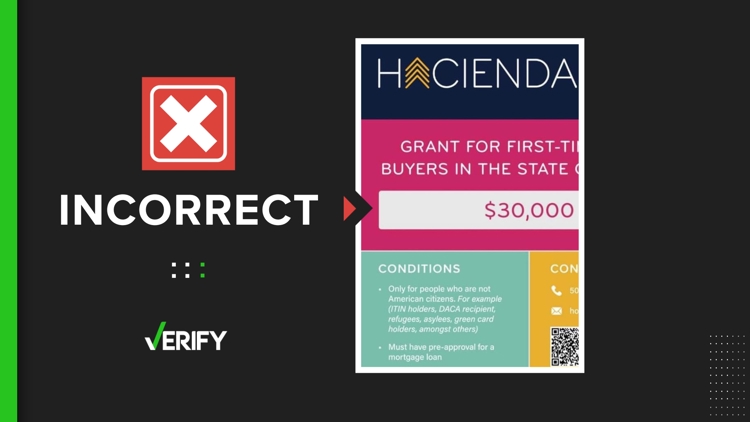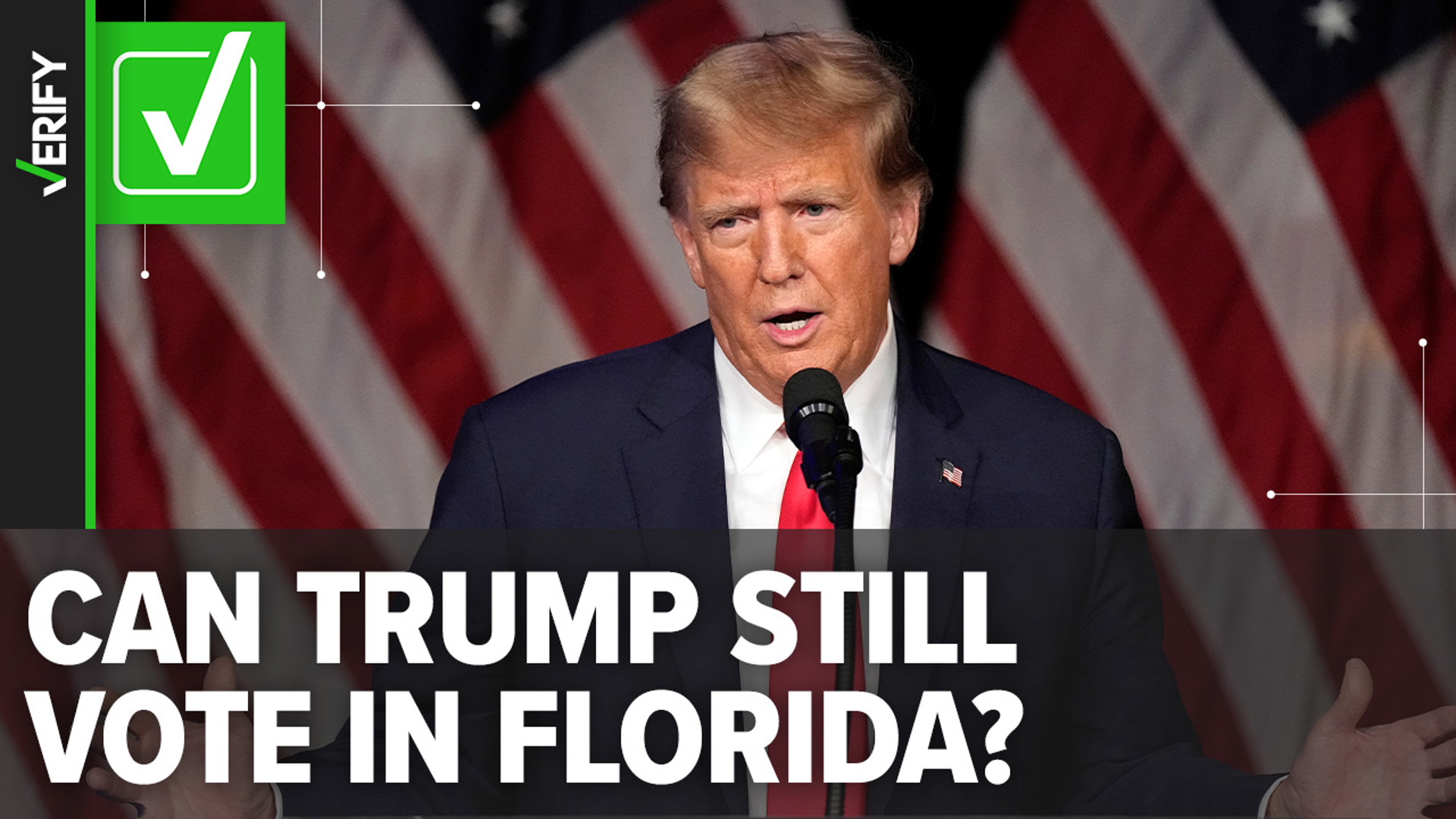PORTLAND, Ore. — Screenshots of flyer purportedly advertising $30,000 grants for first-time homebuyers from Oregon-based Hacienda Community Development Corp has been circulating online in recent days, with many social media users and multiple news outlets drawing attention to a bullet point stating that the grants are "only for people who are not American citizens."
Much of the discussion has involved questions or critical comments about the legality or appropriateness of such a restriction, particularly because the program is funded by a grant from Business Oregon, a state government agency tasked with promoting economic and community development.
THE QUESTION
Does Hacienda run a $30,000 down payment assistance program that excludes American citizens, as stated in a flyer from the organization?
THE SOURCES
THE ANSWER
No, Hacienda's program does not exclude American citizens. The flyer is real but it described the program requirements incorrectly.
WHAT WE FOUND
The flyer specifically declares that the grants are "only for people who are not American citizens" in a bullet point under the label "Conditions," and goes on to list several examples of acceptable citizenship statuses such as DACA recipient, refugee or green card holder.
However, Hacienda issued a statement Sunday declaring that although the flyer is real, the description of the program criteria is inaccurate and the program does not exclude U.S. citizens. The flyer was created by an outside consultant, according to the statement, and Hacienda failed to catch the error before it was published.
The true program eligibility rules require applicants to have a pre-approved mortgage and meet at least two of five "risk factors," as described in Hacienda's statement:
- Experience of discrimination because of race or ethnicity
- English language proficiency
- Citizenship status
- Socioeconomic status
- Residence or operation in a rural location
So while citizenship status is a factor, it's not a requirement; for example, a hypothetical applicant with U.S. citizenship could qualify for a grant based on being economically disadvantaged and living in a rural area.
Hacienda also didn't create the risk factor list; it comes from Senate Bill 1579, which set aside $50 million for Business Oregon in 2022 and directed the agency to create an Economic Equity Investment Program to fund organizations that "provide culturally responsive services to support economic stability, self-sufficiency, wealth building and economic equity among disadvantaged individuals, families, businesses and communities."
The bill's text lists the same five risk factors verbatim and declares that Business Oregon can only award funding to organizations that submit grant program proposals using that same list of five risk factors to evaluate applications. Hacienda was one of the organizations that qualified, and it's using the screening criteria that the legislation requires.



